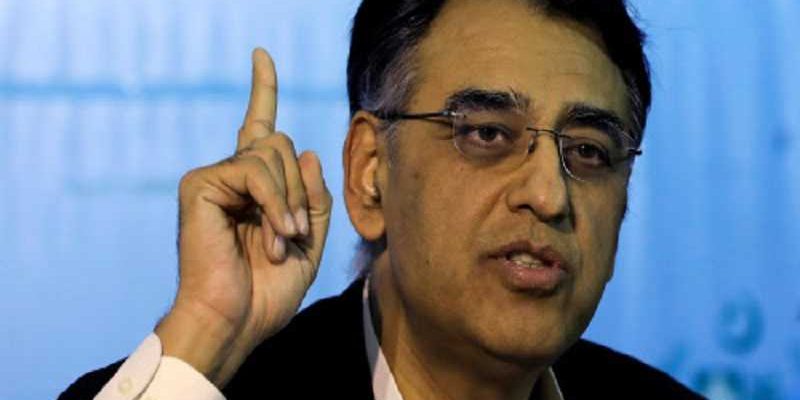ISLAMABAD: Pakistan’s finance minister has stepped down, he announced Thursday, with no replacement yet named as seeks a crucial bailout deal with the .
Umar, one of cricketer-turned-premier ‘s most powerful ministers, had been entrusted with the task of negotiating the long-delayed bailout as Pakistan’s cash-strapped economy faces a balance-of-payments crisis.
As part of a cabinet reshuffle PM desired that I take the energy minister portfolio instead of finance. However, I… https://t.co/4Tb5c9z1Po
— Asad Umar (@Asad_Umar)
His abrupt resignation comes as Khan’s government, which came to power last year, faces growing pressure with the rupee losing 30 percent of its value since the start of 2018, stirring sharp inflation.
“As part of a cabinet reshuffle, PM desired that I take the energy minister portfolio instead of finance,” Asad Umar tweeted.
“However, I have obtained his consent to not take any cabinet position. I strongly believe @ImranKhanPTI is the best hope for Pakistan and inshallah (God willing) will make a naya (new) pakistan,” he wrote.
There was no immediate statement from Khan’s office or confirmation of who would replace Umar, and it was not clear how Umar’s absence would impact any IMF deal.
A new finance minister will have to look after a “difficult economy”, Umar told a hastily assembled press conference in the capital Islamabad shortly after the tweet announcing his resignation.
“We need to take some difficult decisions and we need to show some patience,” he said, appealing to the public to “stand with” the new finance minister.
“Don’t expect that there will be miracles and rivers of honey and milk will start flowing in the next three months,” he warned.
Economist Muzammil Aslam said Umar had taken “tough decisions” to fix the economy.
“In my view, he has become a political victim and a scapegoat to neutralise the pressure,” said Aslam, who heads Emerging Economics Research, a Karachi based company.
Pakistan has gone to the IMF repeatedly since the late 1980s, and last received an IMF bailout in 2013 to the tune of $6.6 billion.
Umar has said often that a deal is coming soon, and that it will be the last one.
Earlier this week Hammad Azhar, a state minister for revenue, tweeted that Umar had reached an “agreement in principle” on an IMF deal during a recent trip to Washington, with the agreement to be finalised later this month.
But experts have warned that any tough measures imposed by the IMF could impact Khan’s grand plans for an Islamic welfare state in Pakistan.
An IMF forecast suggests the Pakistani economy is likely to grow at around 2.9 percent for the fiscal year ending June 2019, compared to 5.8 percent growth in the last fiscal year.
The government is already suffering a backlash. The rupee has been repeatedly devalued, sending inflation to 9.4 percent, as discontent rises along with prices of consumer goods.
The United Arab Emirates, Pakistan’s largest trading partner in the Middle East and a major investment source, recently offered $3 billion to support Pakistan’s battered economy.
